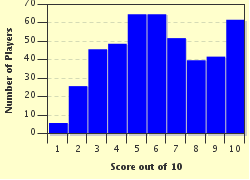Quiz Answer Key and Fun Facts
1. Let's start with an easy one: This German thinker incorporated the philosophy of Hegel in formulating dialectical materialism, which held that progress is determined by economic, and in particular class, conflict and struggle. Who is this social philosopher, author of such works as "Das Kapital" and "The Communist Manifesto?"
2. Famous for such often misinterpreted notions as the the "Superman" and such statements as "God is dead," who is the author of such well-known works as "Thus Spoke Zarathustra" and "The Birth of Tragedy from the Spirit of Music?"
3. Who is the 19th century Scottish anthropologist whose seminal work, "The Golden Bough," influenced Joseph Campbell's "The Hero with a Thousand Faces," itself an influence on the original Star Wars trilogy?
4. Which 20th century thinker posited the notion of a "collective unconscious," which holds that cross-culturally recurrent themes can be attributed to universally, subconsciously recognizable symbols and motifs?
5. Which French thinker, who, along with Karl Marx and Max Weber, is regarded as the founder of sociology as an academic discipline, is thus called "the father of the development of sociology"?
6. Which pessimistic German historian and philosopher, author of such influential works as "The Decline of the West", argued that civilizations rise and then invariably decline?
7. Which 20th century French philosopher, greatly influenced by Nietzsche's "geneaology of morals" and author of such works as "Madness and Civilization", argued, for example, that laws are instruments not of justice but of power?
8. Which cultural anthropologist played an influential academic role in championing a broader sexual morality in the 1960s, following her studies in Samoa?
9. Which American anthropologist, author of "The Interpretation of Cultures", argued that it is impossible for an observer to detach themselves from the cultures they are observing, thus undermining scientific objectivity in the social sciences?
10. Which American economist, an adviser to President Ronald Reagan, became known as a champion of laissez-faire economics, proposing an economic policy known as "monetarism?"
Source: Author
lola0177
This quiz was reviewed by FunTrivia editor
looney_tunes before going online.
Any errors found in FunTrivia content are routinely corrected through our feedback system.

